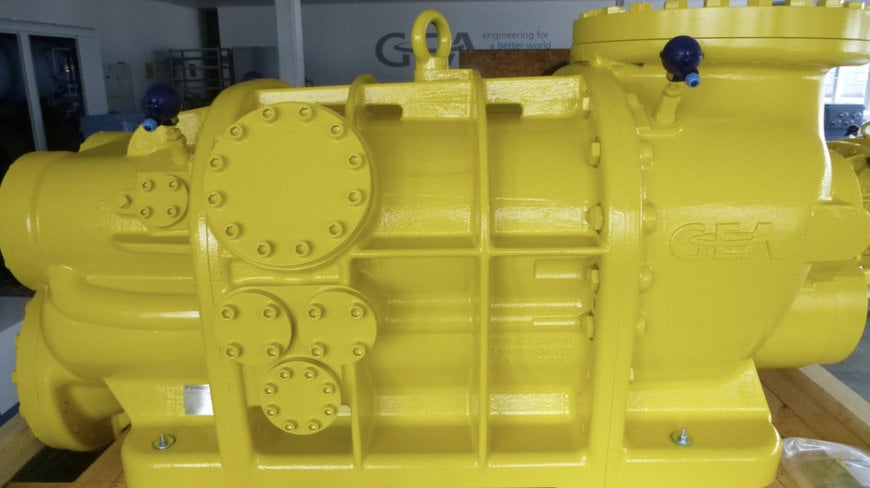www.magazine-industry-usa.com
02
'23
Written on Modified on
GEA COMPRESSOR IMPORTANT COMPONENT OF NEW PARTICLE ACCELERATOR FACILITY AT GSI HELMHOLTZZENTRUM FÜR SCHWERIONENFORSCHUNG
GEA Grasso screw compressors for the compression of helium gas are playing a crucial role in one of the world's largest construction projects for cutting-edge international research.

Powerful compressors - driving force in the cooling process
The order placed with GEA by the project partner Enerproject S.A. includes compressors type XH, GEA's largest compressors, XE compressors and XC compressors, all belonging to GEA's proven LT series. The GEA compressors are the driving force of the process to liquefy the helium and thus cool the superconducting magnets. The entire refrigeration system will have a cooling capacity of 15 kW at about -269°C.
The ions are accelerated with high electric fields. Magnets are used to direct and bundle them. The ions can be accelerated to a maximum speed of around 90 percent of the speed of light, i.e. almost 270,000 km/s. Researchers from all over the world use the accelerated ions at GSI for experiments in a variety of research fields, from particle, nuclear and atomic physics to plasma physics, materials research, biophysics and tumor therapy.
GEA experts master major challenges
The GEA team in the GSI/FAIR project, together with partners such as Enerproject S.A. and Linde Kryotechnik AG, both from Switzerland, faced major challenges - and mastered them. To cool the magnets, it is not possible to use ammonia or any other refrigerant to reach the required temperature. This is only possible with helium, the "coldest" element on earth. The normal boiling point of helium is 4.2 K, which corresponds to about -269 °C. The entire plant contains 12.5 tons of helium. Project manager and key account for gas compressors (DACH), Gerald Geißler, explains: "Helium is an expensive and extremely rare chemical element that cannot be produced artificially. Therefore, the loss and contamination of helium must be minimized in order to reduce costs for the customer. For this reason, the installation of a second O-ring seal for the low-pressure compressors, as well as a leak test (sniff test) with helium were necessary.
For the evaluation phase, GEA was able to recruit an expert for the team: Dr.-Ing. Ole Fredrich, a specialist for screw compressors and with a cryotechnical background due to his research time at the Technical University of Dresden. He provided valuable technical advice to the various parties involved in the project phase and is keen to promote the use of GEA screw compressors for helium and hydrogen applications.
Reference for future projects
The FAIR project is an important reference for GEA for further future projects in the application of helium in refrigeration for such low temperatures as for the FAIR ring accelerator SIS100. Another challenge was to coordinate this long-term project in close cooperation with all parties involved so that the compressors could be delivered on time. For example, leak testing by the ILK Institut für Luft- und Kältetechnik Dresden had to be organized after completion and prior to shipment. According to current planning, the helium compressor plant is scheduled to be commissioned in 2024 and the first jet in 2025. With this project, GEA demonstrated its competencies not only in ammonia as a natural refrigerant, but also in the compression of gases such as the noble gas of helium. The company is confident that it will be able to meet further requests for similar helium plants.
www.gea.com

